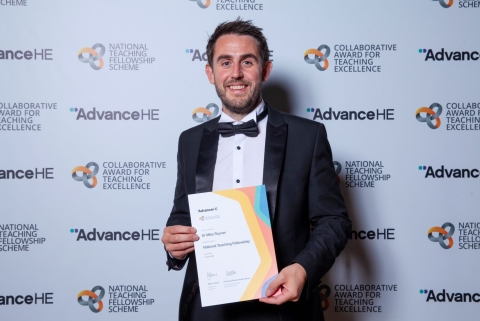

As we know, higher education can play a transformational role in leading change that benefits individuals, communities, society and the economy.
It develops a capacity to live, work and continue to learn ethically and effectively with others in a global world. Developing such capacities is equally important for both staff and students, whether it is through engaging with opportunities to enhance curricula, or understanding our increasingly pluralist society.
However, the word ‘global’ within higher education often gets entwined with the emergence of international strategies that were devised by UK universities in the early 2000s. These strategies were typically commercially-driven and primarily focused on international student recruitment. But these strategies have now evolved, especially at the University of Portsmouth.
Developing global citizens
The University’s Vision 2030 and Strategy 2025 has redefined the global engagement agenda at the institution through the development of a more outward-facing strategy that is focused on a desire to establish international relationships, facilitate social mobility and illustrate its role in the global ecosystem of higher education.
Embedded in the University’s approach is the rationale for developing global citizens who can make a positive contribution to society in times of divisive politics, disruptive technologies and widening inequalities.
One such contribution that higher education has the potential to make is to create adaptive pedagogical approaches in partnership with students to prepare them for work within a complex, rapidly changing and global society. So, in response to these opportunities, the School of Sport, Health and Exercise Science has designed its curriculum to prepare students for the cross-cultural challenges of working with a growing multicultural workforce and ever-more culturally-diverse consumers. This strategy has been accomplished in a number of ways.
For instance, ensuring that students are provided with an international perspective on their subject area which might encompass anything from integrating international content and examples into existing courses, to developing collaborative, online sessions taught by international faculty, to internships, and experiential learning experiences within international or multi-national sport organisations.
Vital as these forms of “internationalization at home” may be, the School also recognises that undertaking an overseas experience can be particularly effective in developing a student’s global mindset and improving their employability in a globalised workforce. Modules such as ‘Overseas Study’, ‘Study Abroad Sandwich Year’ and our two Dual Degrees with Edith Cowan University have provided the opportunity for students to consider an overseas experience within their curriculum.
Breaking down barriers
Nonetheless, the challenge for all of us in higher education is to ensure that as many students as possible get to experience these opportunities.
The recently devised Turing Funding programme has provided funding opportunities for international mobility, whilst there are a number of other commercial mobility grants such as the Santander Mobility Award and let’s not forget the funding that the Erasmus + scheme provided for staff and students to engage in an overseas experience. The benefit of these funding schemes can be particularly felt by under-represented groups in traditional mobility programmes although the prospect of a minimum of 12 weeks overseas still creates barriers despite the financial support.
Consequently, through co-creation via focus groups with the student body and industry recruitment specialists, the School of Sport, Health and Exercise Science has sought to explore shorter, highly focused and structured mobility programmes for students for whom longer periods of mobility can be more challenging, such as those from a lower-income household and those with caring responsibilities. These opportunities are still a minimum of four weeks in length to ensure that they qualify for Turing funding, but are available throughout the summer period to enable students to combine an overseas opportunity with their commitments at home and avoid disrupting their existing study patterns.
The redesign of the curriculum and cultivation of strategic global partnerships to facilitate the development of global mindsets amongst both staff and students has been a long-term project that initially started in 2015. Since then, the School has established exchange agreements and commercial partnerships that span across 10 countries with provision for year-long, teaching block and short mobility opportunities.
The School’s commitment to the global engagement agenda is underpinned by the knowledge that overseas experiences do not and should not look the same for all students and through co-creation we have devised the same overarching goal: to ensure that all students, regardless of gender, ability, ethnicity, socio-economic background or religious beliefs, are enabled to fulfil their potential.
Author: Dr Mike Rayner is Associate Head (Global Engagement and Education Partnerships) and a Reader in Global Sport Management in the School of Sport, Health and Exercise Science at the University of Portsmouth.
More Education Matters blogs
Spotlight on Mission Driven Entrepreneurship: Hacking for Ministry of Defence
Empowering students to explore solutions to some of today’s most pressing issues around national security, natural disasters, energy and the environment, through our new module.
2 February 2023
6 min read

How can we develop the future academic experience through student engagement?
19 January 2023
7 min read

Grit in Portsmouth: mindsets and student belonging
5 January 2023
5 min read

